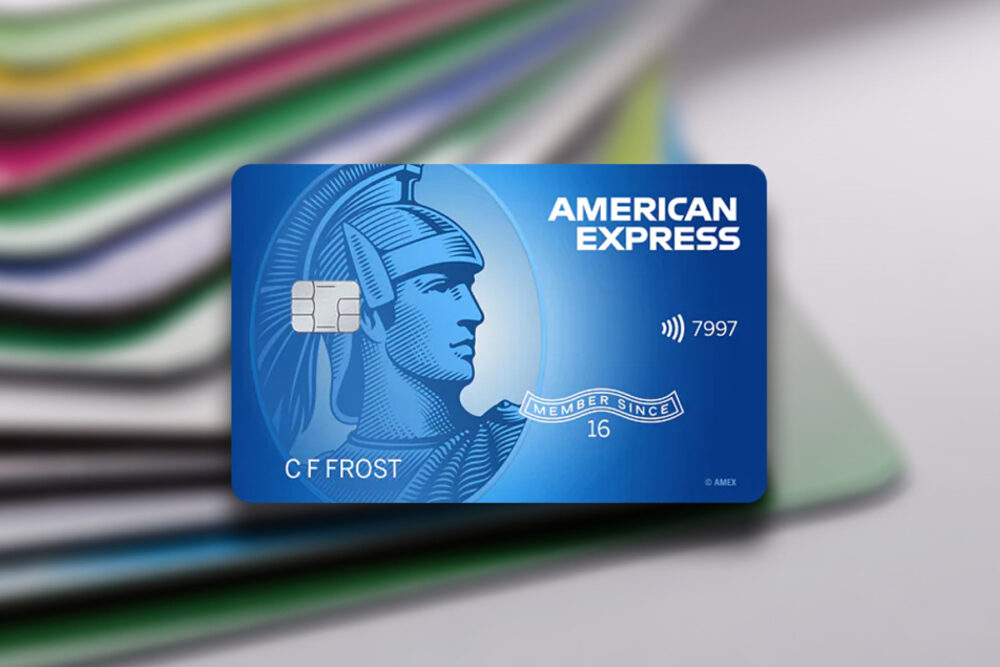The Benefits and Risks of Using Credit Cards to Build Credit in the USA

The Importance of Understanding Personal Finance
Gaining knowledge in personal finance sets the foundation for financial empowerment and independence. In today’s world, where credit plays a significant role in our financial lives, a credit card can be an invaluable tool. Used wisely, credit cards can unlock opportunities for better financial standing, paving the way for future purchases, investments, and experiences.
Benefits of Responsible Credit Card Use
One of the primary benefits of having a credit card is to establish a credit history. This history is essential when applying for loans, mortgages, and even rental agreements. For instance, many landlords check credit scores before signing a lease, as they want assurance of a tenant’s reliability. A solid credit history demonstrates that you are responsible and can manage debt effectively.
Moreover, improving your credit score is crucial and can be achieved through timely bill payments and maintaining low credit utilization ratios. A healthy credit score not only opens doors for loans with lower interest rates but can also save you thousands of dollars in the long run. For example, a 0.5% difference in a mortgage interest rate on a $300,000 loan could mean a savings of over $25,000 across the life of the loan!
Additionally, credit cards offer the possibility to earn rewards. Many cards provide cash back, travel points, or other perks on purchases you would make regardless, such as groceries, gas, or dining out. These rewards accumulate over time, allowing you to enjoy financial benefits simply for managing your spending responsibly.
The Risks of Credit Card Mismanagement
While the advantages are compelling, there are also significant risks involved if credit cards are mismanaged. One of the most common pitfalls is accumulating debt. It’s easy to fall into the trap of spending beyond your means, especially when a credit card is at your disposal. Remember that every dollar charged is ultimately a dollar that needs to be repaid, often with added interest if not managed wisely.
Another challenge is the potential for high interest rates that can stifle your financial progress. Credit cards often come with sky-high APRs, and if you carry a balance month to month, those rates can compound rapidly, leading to overwhelming financial burdens. For example, if you carry a $5,000 balance on a card with a 20% interest rate, and only make minimum payments, you could end up paying almost double what you initially charged.
Lastly, the impact on your credit score can be severe with reckless behavior, such as applying for multiple cards in a short period or carrying high balances on several accounts. Credit inquiries can lower your score temporarily, and high balances can increase your credit utilization ratio, both detrimental to your overall credit health.
Empowering Your Financial Future
To navigate the world of credit cards effectively, it is essential to stay informed and make conscious decisions. Remember, building credit isn’t merely about acquiring a plastic card; it’s about mastering the art of responsible financial behavior. By arming yourself with knowledge and a solid plan, you can harness the power of credit tools to enhance your financial future, create opportunities, and achieve your dreams. Start today by evaluating your spending habits, setting a budget, and remembering that financial empowerment is within your reach.
DON’T MISS OUT: Click here to learn how to apply
Finding the Balance: Maximizing Benefits While Minimizing Risks
As you embark on the journey of using credit cards to build credit, it is essential to strike a balance between reaping the benefits and mitigating the risks associated with credit card usage. Understanding how to maximize your credit card’s potential while avoiding common pitfalls can empower you to take charge of your financial destiny.
Establishing a Credit History is the cornerstone of building credit, and credit cards play a pivotal role in this process. By opening a credit card account, you start to create a record of your borrowing and repayment behavior. Consistently paying your bills on time demonstrates financial responsibility and is one of the most significant factors in determining your credit score. In fact, payment history accounts for 35% of your FICO score, showcasing the importance of punctuality in building your credit profile.
Another crucial aspect is maintaining a low credit utilization ratio. This ratio compares your outstanding credit card balances to your total credit limit. A good rule of thumb is to keep your utilization below 30%. For example, if you have a $10,000 limit, aim to keep your balance under $3,000. This practice not only helps in building your credit score but also fosters healthy financial habits, ensuring that you remain conscious of your spending.
As you navigate the world of credit cards, consider the following tips to build credit effectively:
- Choose the Right Card: Look for cards designed for building credit, which often come with lower fees and more manageable terms.
- Set Up Automatic Payments: Avoid late payments by setting up automatic withdrawals for at least the minimum payment, ensuring consistency.
- Monitor Your Credit Report: Regularly check your credit report for inaccuracies or fraudulent activities that could harm your score.
- Limit New Applications: Space out new credit applications to minimize hard inquiries that can temporarily lower your score.
While the benefits of using credit cards are substantial, awareness of the risks involved cannot be overstated. A profound understanding of how credit cards can impact your finances is necessary for making informed decisions. For instance, quickly accumulating debt can become a pressing concern if you are not vigilant. Each swipe, while seeming innocuous, adds to your total balance, which could quickly spiral out of control if you do not manage your spending appropriately.
Moreover, credit cards often come with high interest rates. If you find yourself unable to pay off your balance in full, the interest accrued can hinder your financial progress. Compounding interest can transform a small debt into an overwhelming burden, affecting your credit score and your ability to secure future financing. Therefore, it’s paramount to understand the terms of your credit card and stay within the limits of your budget.
Realizing the dual nature of credit cards—their potential to foster financial growth and their capacity to lead to significant debt—is critical to shaping your financial future. By implementing strategies to harness the benefits effectively and acknowledging the risks, you can create a pathway toward financial stability and success.
DON’T MISS OUT: Click here for the step-by-step guide to loan approval
Smart Strategies for Navigating Credit Card Usage
As you continue your journey toward building a solid credit history, it’s vital to embrace smart strategies that promote responsible credit card usage. Taking proactive steps not only enhances your ability to build credit but also strengthens your overall financial health.
One effective method is to utilize credit cards for everyday expenses, but with intention and discipline. By treating your credit card like a debit card, you can manage your spending habits effectively. For example, charge only what you can afford to pay off in full each month, whether it’s groceries, gas, or bills. This practice allows you to build a consistent payment history while avoiding the accrual of excess interest. Furthermore, many credit cards offer rewards or cash back on purchases, making your spending even more rewarding.
Another significant aspect of credit card management is understanding interest-free grace periods. Most credit cards offer a grace period on new purchases. This means if you pay your balance in full by the due date, you won’t owe any interest on your purchases. Use this to your advantage by not only paying your balance in a timely fashion but also planning your expenditures so they align with your budget capabilities. This conscientious approach can help you avoid falling into the debt trap while fostering your credit profile.
Planning for Emergencies also plays a critical role in responsible credit usage. While it’s prudent to avoid relying on credit for unexpected expenses, having a credit card as a backup can provide peace of mind. If an emergency arises, such as a medical bill or car repair, having an available credit line can prevent financial distress. However, ensure that you only use such options as a temporary solution, with a plan in place to pay off the debt as soon as possible.
In addition to these strategies, consider utilizing budgeting tools or apps that help you track your spending and remaining credit limits. Many modern financial tools can give you insights into your financial habits and alert you in case of overspending. These tools can be invaluable in ensuring you stay within your means, therefore protecting your credit score from potential damage.
Another powerful way to bolster your credit-building efforts is through becoming an authorized user on a responsible individual’s credit card account. By being added as an authorized user, you can benefit from their positive payment history without being held responsible for making payments. This can be an excellent option, particularly for those just starting to build credit. Just be sure to select someone with a solid credit history and low utilization to help boost your own score effectively.
Lastly, a key point to remember is that patience is essential in the quest for a healthy credit score. Building credit takes time, and there will inevitably be bumps along the road. Celebrate your progress, no matter how small, and stay committed to your financial goals. Remember that each responsible credit card decision you make contributes positively to your financial narrative, paving the way for a brighter economic future.
DISCOVER MORE: Click here for easy application tips
Conclusion
In summary, using credit cards to build credit in the USA presents both valuable opportunities and potential pitfalls. By embracing responsible credit card practices—such as making timely payments, maintaining a low utilization rate, and treating your credit card like cash—you can cultivate a strong credit profile that opens doors to favorable loans and financial stability. For instance, a solid credit score may qualify you for lower interest rates on mortgages and auto loans, significantly impacting your monthly payments and overall financial health. Remember, your credit score is not just a number; it’s a reflection of your financial habits and decisions.
However, it is crucial to remain vigilant against the risks associated with credit card usage, such as high-interest debt and overspending. The average interest rate on credit cards can hover around 16%, which can quickly accumulate if balances are not paid off promptly. Building credit is a marathon, not a sprint. It requires patience and a commitment to responsible financial management. A key strategy is to pay off your balance in full each month; not only does this prevent interest charges, but it also demonstrates to lenders that you can manage credit responsibly. Recognizing that every purchase and payment contributes to your financial narrative can empower you to make more informed decisions.
Ultimately, with the right strategies and a mindful approach, you can transform credit cards from a potential liability into a powerful tool in your financial toolkit. Start by setting a budget for your monthly expenses and only use your card for those purchases that you can afford to pay off. As you navigate this journey, celebrate every achievement, no matter how small, whether it’s paying off a balance or watching your credit score rise. Stay focused on your long-term goals because consistent, small actions can have a significant impact over time. By doing so, you’ll not only build a healthier credit score but also nurture a sustainable, prosperous financial future for yourself.



